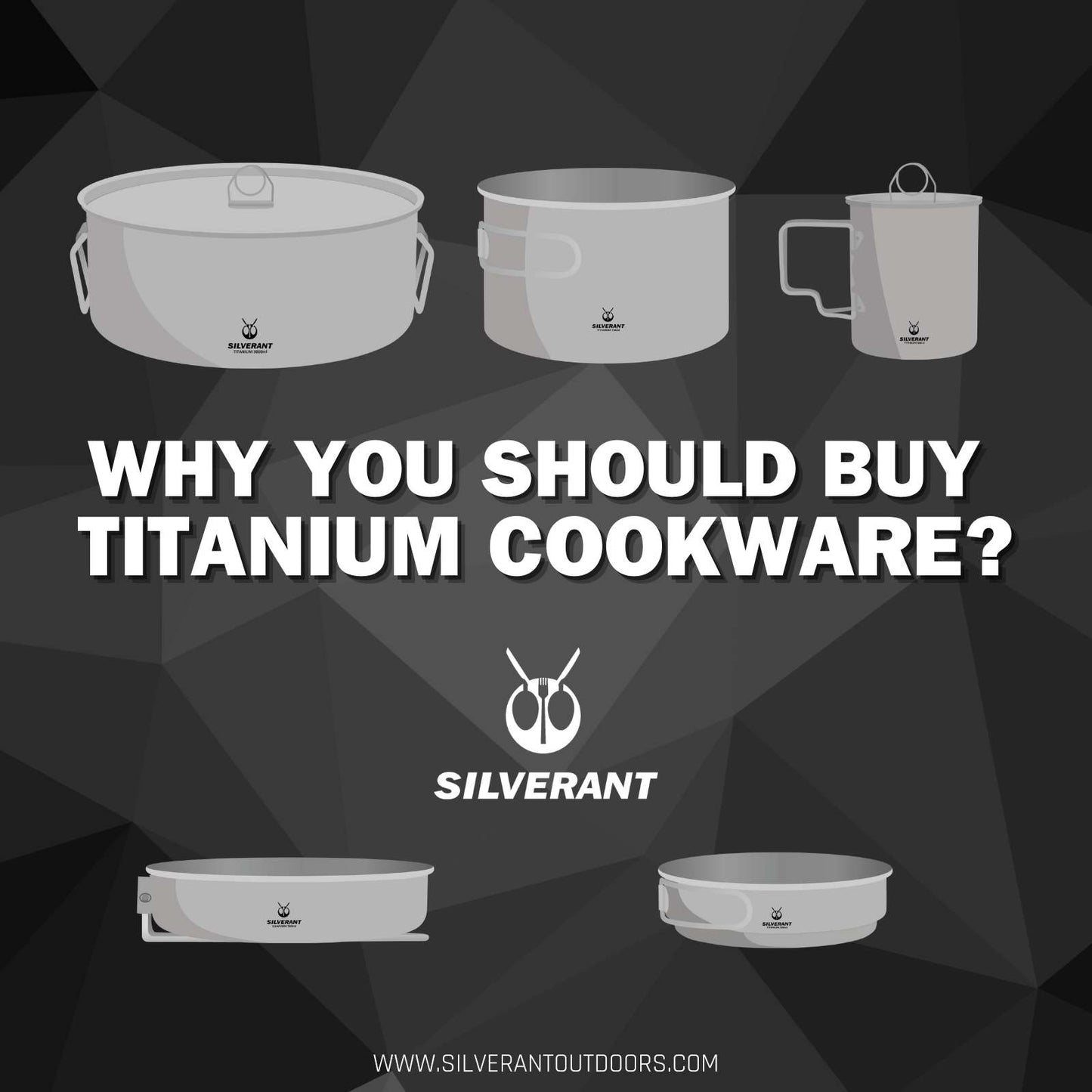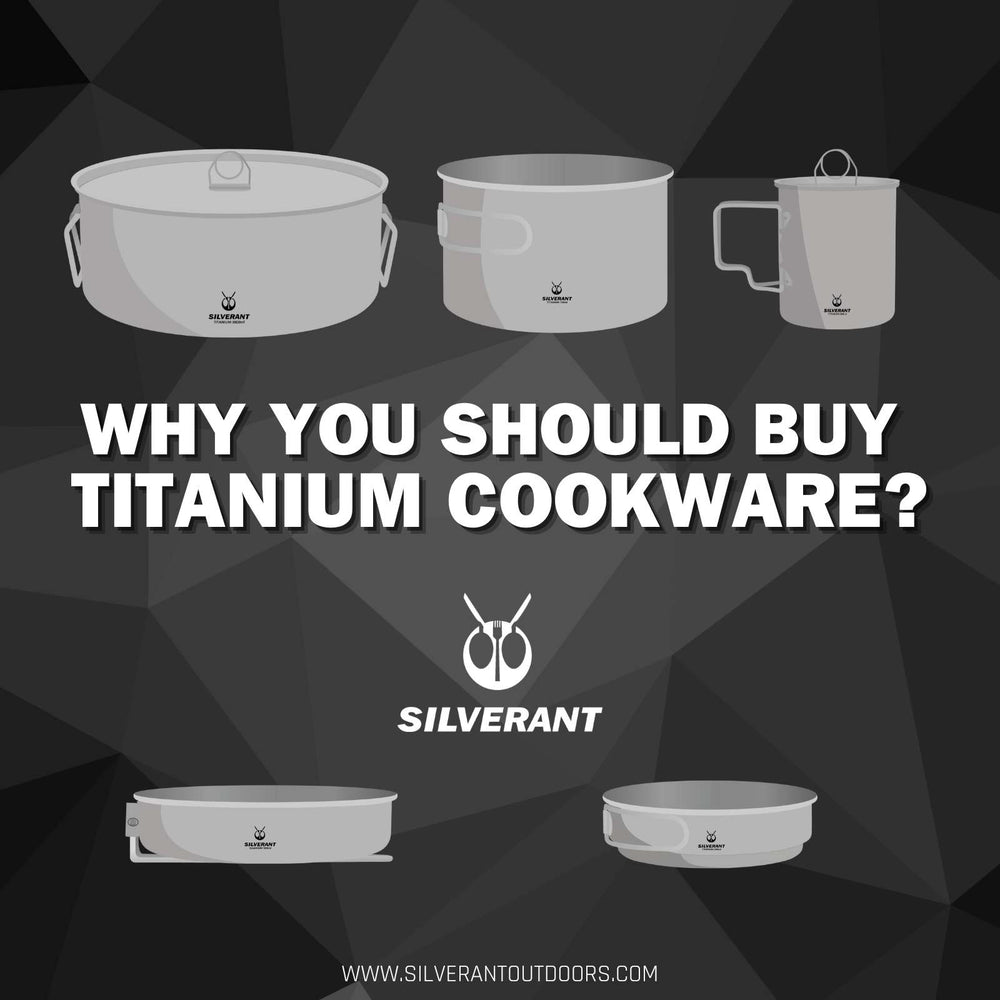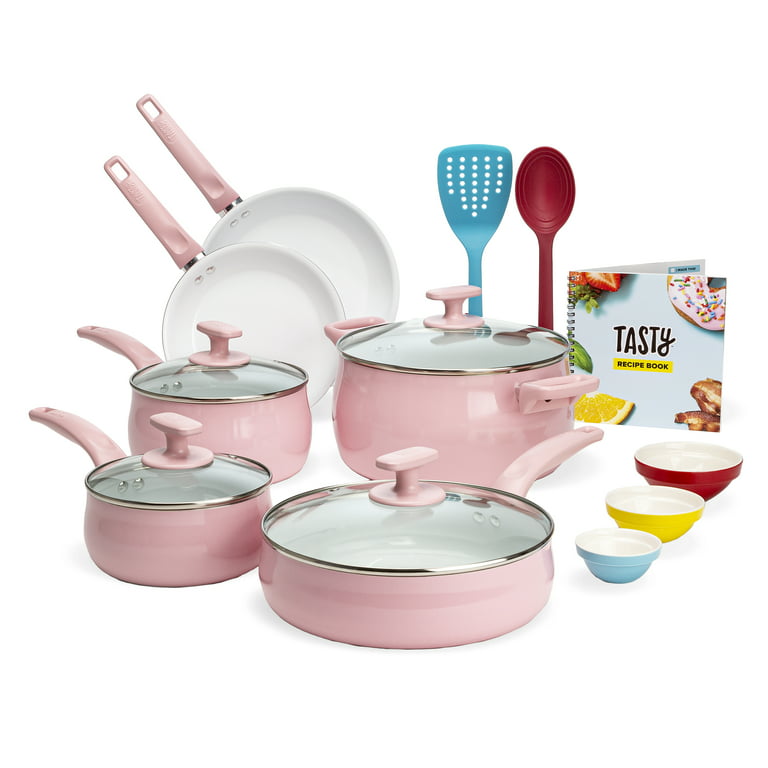As an Amazon Associate, I earn from qualifying purchases
Yes, it is safe to use titanium cookware due to its non-reactive and non-toxic nature, making it a popular choice among professionals and home cooks alike. With its high durability and resistance to scratches, chipping, and corrosion, titanium cookware provides a safe and reliable cooking experience that is free of harmful chemicals.
Additionally, this type of cookware heats up quickly and evenly, ensuring efficient cooking and preventing hot spots. Titanium cookware is also lightweight, making it easy to handle and suitable for everyday use. Its versatile nature allows for different cooking methods, such as baking, frying, and boiling, making it a valuable addition to any kitchen.
So, whether you are a beginner cook or a seasoned chef, using titanium cookware ensures safe and enjoyable cooking.
Table of Contents
ToggleBenefits Of Titanium Cookware
Titanium cookware offers a safe and durable option for cooking. It is non-reactive, lightweight, and resists corrosion, making it a popular choice for health-conscious individuals. Its ability to distribute heat evenly and its non-stick properties also contribute to its appeal in the kitchen.
Durability
Titanium cookware is known for its exceptional durability.
Lightweight And Easy To Handle
Being lightweight, titanium cookware is easy to handle and maneuver.
Non-reactive Surface
The non-reactive surface of titanium cookware ensures the purity of food flavors.

Credit: silverantoutdoors.com
Potential Risks Of Titanium Cookware
Titanium cookware is renowned for its durability, lightweight nature, and non-reactive properties. However, it’s essential to understand that even this seemingly perfect cookware material is not without potential risks. In this section, we will explore the potential risks associated with using titanium cookware, focusing on two primary concerns: prolonged exposure to high heat and scratching and wear.
Prolonged Exposure To High Heat
When it comes to cooking, high heat is often a necessary requirement. While titanium cookware is generally designed to withstand high temperatures, prolonged exposure to extreme heat can pose potential risks.
Firstly, excessive heat can cause the titanium cookware to warp or deform over time. This is particularly true if the cookware is rapidly heated or cooled, which can compromise its structural integrity and even lead to potential kitchen accidents. It is crucial to follow the manufacturer’s instructions regarding the recommended heat limits for the specific titanium cookware you are using.
Additionally, prolonged exposure to high heat can cause the non-stick coating on titanium cookware to deteriorate. Prolonged use of high heat can lead to the release of toxic fumes and chemicals from the cookware’s non-stick coating, potentially contaminating your food and posing health risks.
Scratching And Wear
Titanium cookware boasts excellent durability, but it is not impervious to scratching and wear. It is essential to take precautions to avoid damaging the surface of the cookware, as scratches can compromise its non-stick properties and potentially expose the underlying material.
If you often use metal utensils or abrasive scrubbing pads, you risk scratching the surface of your titanium cookware. These scratches can not only hinder its non-stick capabilities but also allow potential chemical reactions between the exposed titanium and ingredients in your food.
To ensure the longevity of your titanium cookware and reduce the risk of scratching, it is recommended to use wooden or silicone utensils and non-abrasive cleaning tools. Handwashing your cookware instead of using a dishwasher can also minimize the risk of wear and tear.
Comparing Titanium Cookware To Other Materials
When it comes to choosing cookware, it’s essential to consider the material it’s made from. One popular option that has gained attention in recent years is titanium cookware. But how does it compare to other materials? Let’s explore the differences between titanium cookware and other common options.
Titanium Vs. Stainless Steel
Stainless steel is a durable and popular choice for cookware. However, titanium cookware offers several advantages over stainless steel. Titanium is significantly lighter than stainless steel, making it easier to handle. Additionally, titanium provides even heat distribution, whereas stainless steel can have hot spots. Both materials are corrosion-resistant, but titanium is more scratch-resistant, offering a longer lifespan.
Titanium Vs. Non-stick Coatings
Titanium cookware often features non-stick coatings for easy cooking and cleaning. Compared to traditional non-stick coatings, titanium-based non-stick surfaces are more durable and scratch-resistant. They also do not contain PFOA, a potentially harmful chemical found in some non-stick coatings. Titanium’s non-stick properties make it an excellent choice for those seeking healthier cooking options without sacrificing convenience.

Credit: silverantoutdoors.com
How To Safely Use And Maintain Titanium Cookware
When it comes to cooking, using the right cookware is essential for maintaining the safety and nutritional value of the food you prepare. Titanium cookware has gained popularity for its durability, non-reactive properties, and lightweight nature. However, in order to ensure the safe use and longevity of titanium cookware, it’s important to understand how to properly season, clean, and store it. In this guide, we’ll explore the best practices for safely using and maintaining your titanium cookware.
Seasoning And Preparing For First Use
Before using your new titanium cookware for the first time, it’s crucial to season it properly. Seasoning helps create a non-stick surface and enhances the performance of the cookware. To season titanium cookware:
- Wash the cookware with warm, soapy water and dry it thoroughly.
- Apply a thin layer of cooking oil to the interior surface of the cookware.
- Heat the cookware on low heat for 2-3 minutes, allowing the oil to bond with the titanium surface.
- Let the cookware cool, then wipe off any excess oil with a paper towel.
Cleaning And Storage Tips
Proper cleaning and storage are key to maintaining the quality and durability of your titanium cookware. Follow these tips for cleaning and storing your titanium cookware:
- Hand wash your titanium cookware with mild soap and a soft sponge or cloth. Avoid using abrasive cleaners or metal utensils that can damage the non-stick surface.
- After cleaning, thoroughly dry the cookware with a soft towel to prevent water spots or mineral deposits.
- Store your titanium cookware in a dry and well-ventilated cabinet, making sure to stack it carefully to avoid scratches or damage.
- Consider using protective pan separators or soft cloth liners to prevent scratching when stacking cookware.
- Avoid stacking heavy items on top of your titanium cookware to prevent warping or denting.
Tips For Choosing High-quality Titanium Cookware
Looking for safe and high-quality titanium cookware? Here are some tips to guide your selection process. Discover the factors to consider, such as coating materials, thickness, and proper maintenance, to ensure a satisfactory culinary experience.
Thickness And Construction
Choosing high-quality titanium cookware requires careful consideration of various factors. One important aspect to look for is the thickness and construction of the cookware. The thickness of the titanium material used in the cookware determines its durability and heat distribution capabilities. Thicker titanium cookware tends to be more sturdy and resistant to warping, ensuring it can withstand frequent use and high heat cooking. Additionally, a well-constructed cookware design ensures even heat distribution, preventing hot spots and allowing for consistent cooking results. Look for cookware that features multiple layers of titanium or has a solid titanium base for enhanced heat distribution and efficient cooking.Certifications And Safety Standards
When it comes to your health and safety, it’s crucial to choose titanium cookware that meets the necessary certifications and safety standards. Look for cookware that is certified by reputable organizations such as the FDA (Food and Drug Administration) or international equivalents. These certifications ensure that the cookware is free from harmful chemicals and toxins. Additionally, certain cookware brands may undergo thorough testing to obtain certifications like PFOA-free, lead-free, or non-toxic, which further guarantees the safety of the cookware. By choosing cookware with the appropriate certifications and safety standards, you can enjoy peace of mind while cooking your favorite meals.In conclusion, when selecting high-quality titanium cookware, paying attention to its thickness and construction is essential for durability and even heat distribution. Moreover, selecting cookware that adheres to certifications and safety standards ensures the cookware is free from harmful substances. By considering these tips, you can confidently choose safe and long-lasting titanium cookware for your kitchen.
Credit: www.walmart.com
Myths And Facts About Titanium Cookware
Discover the reality behind the myths and facts surrounding titanium cookware. Explore the common misconceptions and actual truths to make informed decisions about using titanium cookware in your kitchen.
Myth: Titanium Cookware Is Indestructible
Titanium Cookware Can Conduct Heat Quickly, ensuring efficient cooking experience.
Fact: Titanium Cookware Can Conduct Heat Quickly
One of the common misconceptions is that titanium cookware is indestructible. While titanium is incredibly durable, it is not immune to damage.
Expert Recommendations On Using Titanium Cookware
Professional Chefs’ Perspectives
Chefs advocate for titanium cookware due to durability and even heat distribution.
Titanium offers a lightweight yet sturdy option for everyday cooking needs.
Advice From Culinary Experts
Culinary experts emphasize proper care to maintain titanium cookware longevity.
Seasoning with cooking oil creates a non-stick surface for optimal cooking.
Frequently Asked Questions For Is It Safe To Use Titanium Cookware
Is Titanium Cookware Safe For Cooking?
Yes, titanium cookware is safe for cooking. It is non-toxic, durable, and distributes heat evenly, making it a popular choice among chefs and home cooks.
What Are The Benefits Of Using Titanium Cookware?
Titanium cookware is lightweight, non-reactive, and resistant to corrosion. It also requires less oil for cooking, making it a healthier option for meal preparations.
Is Titanium Cookware Easy To Clean And Maintain?
Yes, titanium cookware is easy to clean and maintain. It is dishwasher safe and does not require seasoning like cast iron cookware. Simply wash with mild soap and water.
Can Titanium Cookware Be Used On All Cooktops?
Yes, titanium cookware is compatible with all cooktops, including gas, electric, ceramic, and induction. Its versatility makes it a convenient choice for various cooking needs.
Conclusion
After careful consideration of the evidence, it can be concluded that titanium cookware is a safe and reliable choice for cooking. Its non-toxic and non-reactive properties make it a popular option in maintaining the integrity of food flavors. Additionally, titanium cookware’s durability and heat distribution capabilities further enhance its appeal.
However, it’s important to purchase high-quality titanium cookware from reputable brands to ensure the best results. Happy and safe cooking with titanium!
As an Amazon Associate, I earn from qualifying purchases

